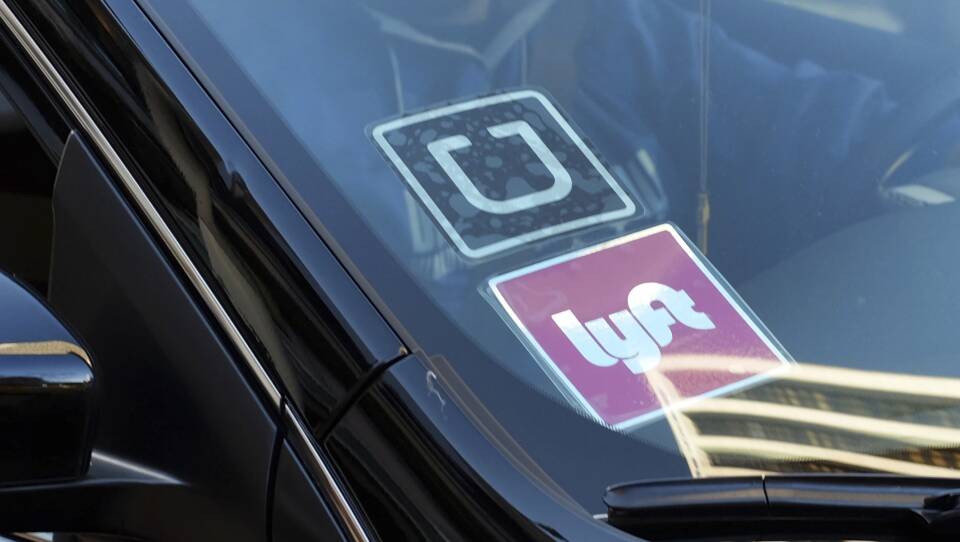Ahead of Uber's initial public offering, drivers for Uber, Lyft and other ride-hailing companies plan to strike, turning off the apps as they flex their collective muscles to say: What about us?
Drivers in 10 cities across the country are taking action on Wednesday to draw attention to what they say are decreasing wages for drivers and a distressing lack of job security – and some are calling on passengers to temporarily boycott the ride-hailing services, too.
Among the drivers' demands in LA are a 10 percent cap on commissions taken by Uber and Lyft, hourly minimum pay, and fare breakdowns on passenger receipts that show the companies' take. New York drivers are demandingan end to sudden account deactivations and the right to appeal through the courts.
The strike was spearheaded by Rideshare Drivers United, a Los Angeles-based association of drivers. And the group is asking for the support of would-be passengers, too.
"We ask that the public support drivers in their struggle for fair wages and our Drivers bill of rights," spokesperson and member Brian Dolber said in an email to NPR. "We are calling for community standards that will ensure that Uber and Lyft do not create needless traffic and pollution. By boycotting Uber/Lyft for 24 hours, passengers can show that they stand with RDU in our fight for a rideshare industry that truly serves Angelenos."
When companies go public, it usually means big money for executives, and sometimes nice payouts for employees. San Francisco's housing market has been bracing for the thousands of newly-minted millionaires spawned by four major IPOs this spring.
Uber's valuation could be as high as $91 billion when trading begins, which would place it among the top three most valuable firms to ever debut on a U.S. exchange. Co-founder and former CEO Travis Kalanick's stake may be worth as much as $5.9 billion.
But the IPO won't be life-changing for most drivers, whom Uber insists are independent contractors, not employees. Some drivers will receive one-time bonuses according to their loyalty: Those who completed more than 2,500 trips before April 7 and at least one this year are eligible for a one-time bonus, ranging from $100 for those drivers with 2,500 completed trips to $40,000 for 40,000 completed trips. U.S. drivers can use that bonus to buy up to $10,000 in stock in the company at the IPO price.
That may not end up being a great deal, if Lyft's IPO is any indication: its shares are down about 20 percent since the initial offering. Some drivers also went on strike before Lyft went public in March.
Strikes or rallies are also planned in Chicago, Washington, Boston, Atlanta, Philadelphia, San Diego, San Francisco, and Stamford, Conn. On Twitter, organizers are using the hashtags #StrikeUberLyft and #AppsOffMay8 to build momentum.
This strike will take different forms in different cities, but in the LA metro area the strike will last for 24 hours, with a picket line at LAX airport and a noon rally. The New York Taxi Workers' Alliance called for a rush hour strike, during which drivers will turn off the Uber, Lyft, Juno and Via apps from 7 to 9 a.m., and then rally outside Uber and Lyft headquarters in Long Island City.
"Uber/Lyft going public on the stock market will make billionaires of Uber and Lyft bosses while drivers struggle in poverty and the companies destroy the livelihoods of drivers in every sector," the New York drivers' organization says in its call to action.
For those who often use ride-hailing apps and want to support the strike, today may mean a commute by public transit, a cab, or bicycle. At D.C.-area airports, officials arranged for extra cabs, and said they always encourage passengers to consider taking the Metro or the bus, The Washington Post reported.
In a statement to Post, Uber said drivers "are at the heart of our service — we can't succeed without them — and thousands of people come into work at Uber every day focused on how to make their experience better, on and off the road. Whether it's more consistent earnings, stronger insurance protections or fully-funded four-year degrees for drivers or their families, we'll continue working to improve the experience for and with drivers."
Copyright 2019 NPR. To see more, visit https://www.npr.org.




